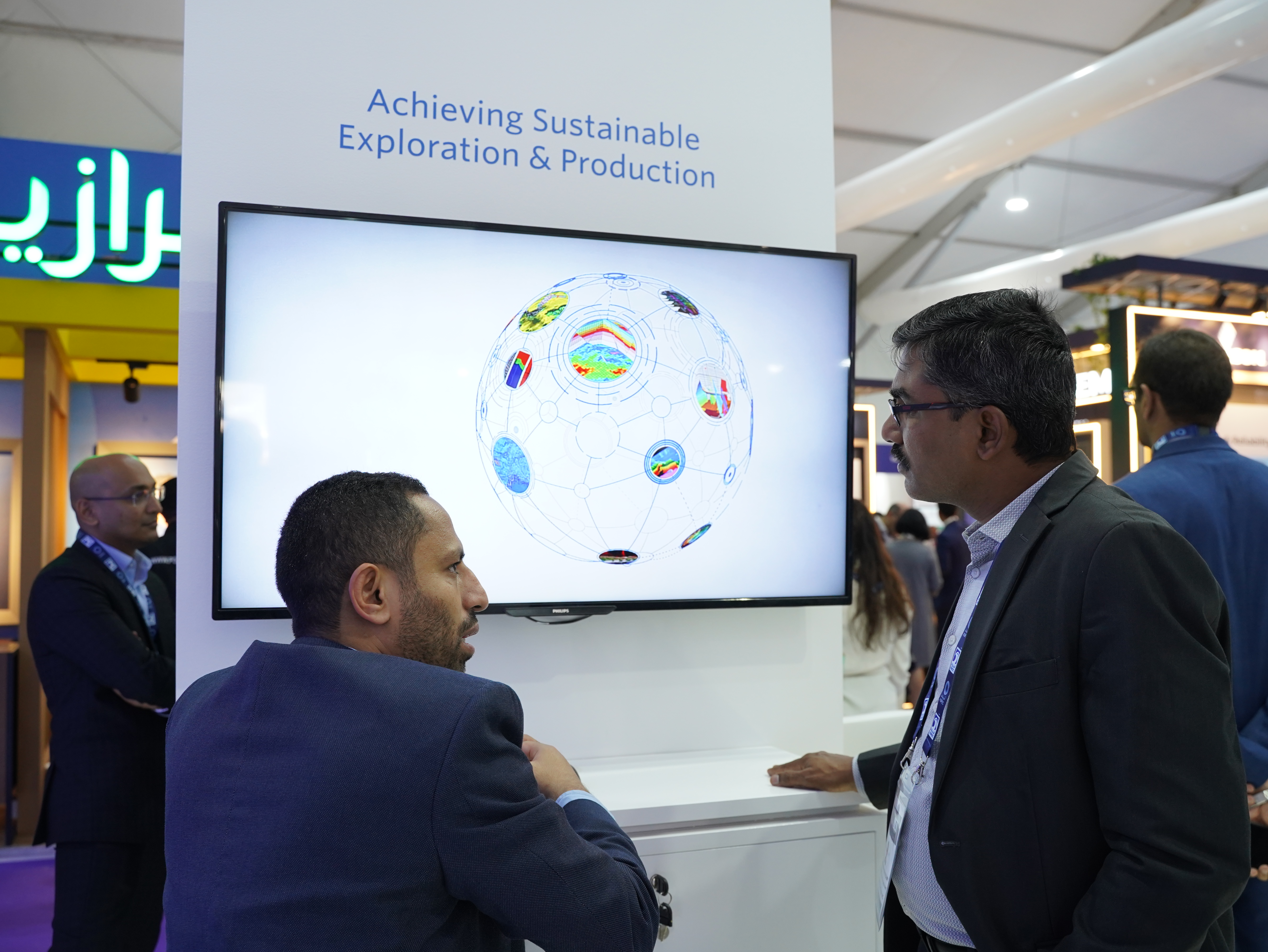In less than two months, COP28 will open in the United Arab Emirates, and while the world has made significant progress on sustainability, the message delivered this week at ADIPEC was clear - we are facing a critical moment in the global drive to reach net zero goals.
In dozens of conversations with partners and peers and from observations in executive roundtables and strategic panels, I’ve heard the message again and again - the world faces an enormous challenge in addressing climate change and partnerships will be critical to our common success.
Over the course of my career, I’ve spent more than three decades working in the energy and process technology sectors, and it’s apparent today that much of the progress in digital transformation during that period has been about laying the essential groundwork which will serve as the foundation for sustainability efforts going forward.
I’ve heard people say that “green is not black and white.” While it’s apparent there is no single solution for meeting sustainability goals, it is also clear to me that technology, collaboration and people will all be at the core of the transition.
Technology
The power of technology in enabling the energy transition cannot be overstated.
In the near-term, technology is crucial to driving increased efficiency and optimization of current assets and infrastructure as we work to meet net zero targets. Particularly for hard-to-abate industries like steel production, long-distance transportation and shipping and aviation, technology will be critical to accelerating sustainability efforts by ensuring companies achieve maximum efficiency while producing minimal emissions. Efficiency gains will be critical to achieving near-term reductions in emissions to enable us to achieve our net-zero ambitions.
Going forward, digitalization will play key roles in the continued development and scaling of the next generation of sustainability technologies. Electric vehicles, carbon capture utilization and storage (CCUS) systems, the hydrogen economy, reducing plastic waste and increasing circularity – all depend on technology not only for their continued development, but also for efforts to scale them up.

As was often acknowledged this week, many of the technologies and systems that will deliver a sustainable world in the future are still in their infancy. Technology will be key if we hope to nurture those systems as they scale in coming decades.
While the use cases for asset-intensive industries have been well understood for decades, the new challenges of the energy transition and decarbonization are rewriting the rules of technology, and those new use cases – whether they address the hydrogen economy, bio feedstocks or carbon capture – are still being developed. Digital technology can act as an ideal testbed for understanding the core processes that underpin those use cases, as well as how to scale them for global impact. New technologies will also be applied to the problems of today, and tomorrow, as companies work to incorporate AI-enabled solutions into their operations and the use of quantum computing helps to unlock new materials and process insights.
Collaboration
Developing and deploying technologies on a global scale, however, is far from easy. Simply adopting new digitalization tools won’t be enough if companies hope to reach net zero goals. The only answer is to develop new ways of doing business with collaboration and co-innovation at their core, partnering together.
.jpg?h=40%25&w=60%25&hash=244918855F989BC869B30E1015E238B8)
AspenTech has already worked to create such collaborations – earlier this year, we partnered with Saudi Aramco to license a system that optimizes carbon capture and utilization technology as part of an integrated modelling and optimization solution. We have also partnered with companies in Europe, Canada and the U.S. to help drive the development of other carbon capture technologies, as well as hydrogen, renewable energy and more.
Just this week, the AspenTech team met with our Customer Advisory Board for the Middle East to continue our discussions on co-innovation and develop plans for the future.
People
While there is little doubt that technology and collaboration will be crucial for a sustainable future, none of that progress will be possible without people.
Around the world, industries continue to grapple with the “double whammy” of a workforce with vast knowledge of the energy infrastructure retiring, while trying to replace them with a new generation of digital natives who lack the same experience.
Companies will need to confront the challenge of the skills gap that is developing in their organizations by focusing on extensive training in the use of digital technologies and competency development in the core work and business processes essential to safely and reliably operate highly complex assets. Doing so will ensure organizations possess the capabilities to adopt digital technologies and sustain their use over time to meet the dual challenge and be more profitable and sustainable, since there should not be a trade-off between these twin objectives.

To highlight our dedication to investing in the future workforce, AspenTech Chief Product and Sustainability Officer Rasha Hasaneen took part in an ADIPEC panel discussion, “The Just Energy Transition: An Engine to Drive Social Equity and Inclusivity,” which was dedicated to “all things people.” Among her highlights on the panel was our work with the Egypt Ministry of Petroleum and Mineral Resources to help prepare university students to enter the workforce and attract them to sustainability technologies. This is an investment we feel is imperative.
Conclusion
While I’ve taken many insights and observations from the sessions and conversations this week, I find myself returning again and again to my interview with Dan Murphy from CNBC, who asked whether it is truly possible for industry to reach net zero in the next seven years.
My answer to him remains true. Without doubt, it will be a challenge. We must maintain our focus on efficiency, for today and for the future. Scaling the solutions we have, and those we are developing, will be critical. But most critically, it will be impossible without accelerating our investment in digital technology.
.png?h=250&w=975&la=ja&hash=015C4D912008A471B7D3FA743FA04417)

Leave A Comment